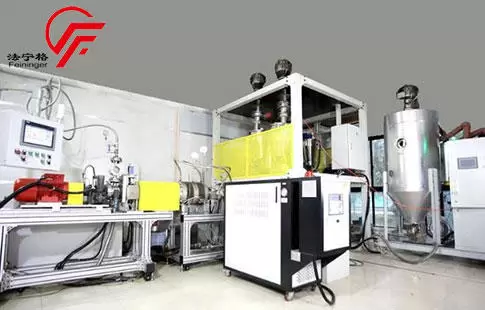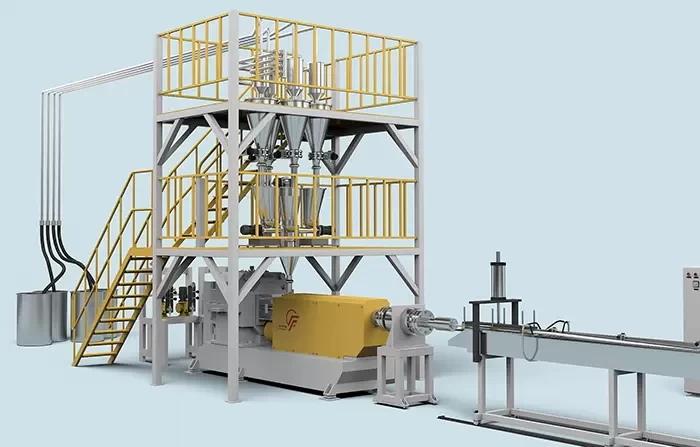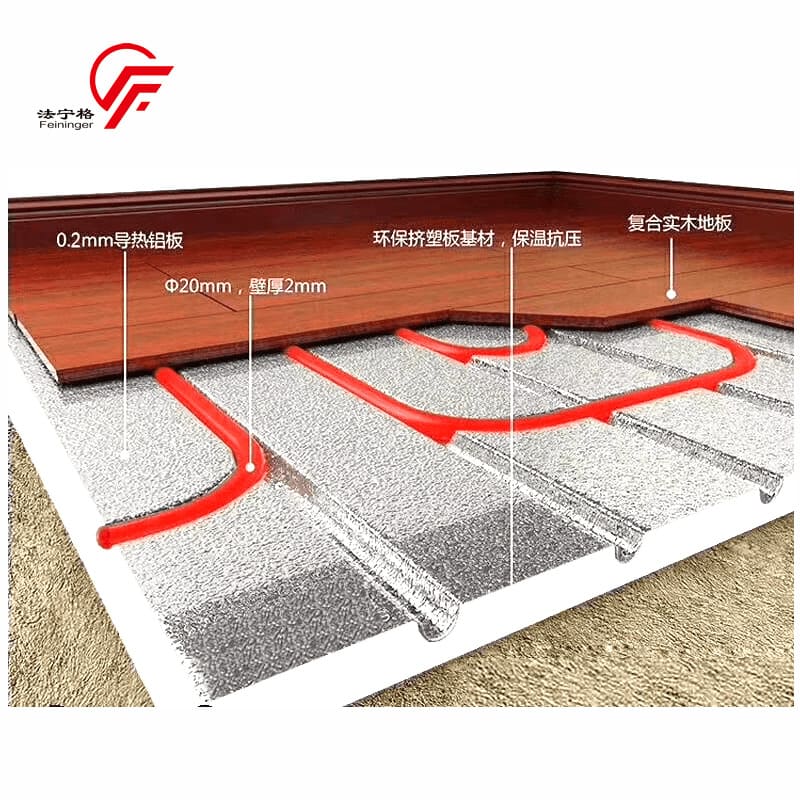Technology
28
Mar . 2025In today's world, shock absorption is a key factor in various industries, from automotive manufacturing to sports equipment design and even packaging materials. One of the most effective materials for shock absorption is ETPU foam, a high-performance material known for its lightweight, resilient, and durable characteristics. As demand for high-quality shock absorption solutions continues to rise, ETPU Beads Foam Production Lines play an integral role in creating this highly sought-after material.

This blog post will delve into the role of ETPU Beads Foam Production Lines, focusing on how the advanced Feininger extrusion ETPU production line has revolutionized the manufacturing process, providing stable and efficient production capabilities. We’ll also highlight key technologies such as supercritical CO2 fluid kettle pressure foaming and pressure compensation, which address critical industry challenges, such as hydrolysis and yellowing of polyester ETPU.
ETPU (Expandable Thermoplastic Polyurethane) is a unique type of foam that has gained popularity in many industries due to its outstanding shock-absorbing properties. When produced using ETPU Beads Foam Production Lines, the material is formed into small beads that expand and fuse together under heat, creating a flexible and durable foam. ETPU foam is lightweight, resistant to wear and tear, and offers superior cushioning and energy absorption, making it ideal for applications like footwear soles, automotive components, and packaging materials.
The Feininger extrusion ETPU production line has set a new standard for ETPU foam production. Known for its mature processes and high equipment stability, Feininger’s production line has become an industry leader, offering unmatched performance and reliability. This production line ensures that the entire process, from raw material feeding to final product extrusion, is efficient, consistent, and scalable.
Feininger’s technology incorporates the latest advancements in extrusion technology, optimizing the manufacturing of ETPU foam beads for a variety of applications. By improving the consistency of bead size and density, the production line ensures that the final product meets high-performance standards required by industries like automotive, sports, and protective packaging.
One of the standout technologies in Feininger’s ETPU Beads Foam Production Line is the supercritical CO2 fluid kettle pressure foaming. This process uses supercritical CO2 as a foaming agent, replacing the need for traditional chemical blowing agents that can be harmful to the environment. The supercritical CO2 method allows for greater control over the expansion of the foam beads, resulting in more uniform bead sizes and better material properties.
Not only does this technology reduce the environmental impact of foam production, but it also enhances the shock absorption performance of the foam. The resulting foam is more lightweight, with a higher energy absorption capacity, making it perfect for applications that require exceptional cushioning, such as in automotive seats, helmets, and footwear.
Another key technology that Feininger has integrated into its production line is pressure compensation. This new technology addresses a major challenge in the production of polyester ETPU foam—hydrolysis and yellowing. During the application stage, polyester ETPU is prone to hydrolysis, which can degrade the material, making it less effective and aesthetically appealing. Additionally, exposure to heat and humidity can cause yellowing, affecting the foam’s performance and visual quality.
By using pressure compensation technology, Feininger has been able to solve these issues, ensuring that polyester ETPU foam maintains its stability and color integrity over time. This improvement significantly increases the longevity of the foam in real-world applications, allowing it to maintain its shock-absorbing properties without degradation from moisture or exposure to UV light.
The advancements in ETPU Beads Foam Production Lines have significantly impacted the development of high-performance shock absorption materials. The combination of Feininger’s extrusion production line, supercritical CO2 fluid kettle pressure foaming, and pressure compensation technology has created a new benchmark for the industry, offering superior materials for applications that require lightweight, durable, and efficient shock absorption.
In the automotive sector, ETPU foam is used for components such as seat cushions, bumpers, and interior trim. With the ability to absorb high levels of impact while remaining lightweight, ETPU foam improves vehicle safety and comfort. The advancements in production technology ensure that these components maintain their shape and shock-absorbing qualities over time, even under extreme conditions.
For sports equipment, such as helmets, padding, and protective wear, ETPU foam provides reliable protection against impact. The improved stability and durability of the foam, combined with its superior shock absorption capabilities, ensure that athletes remain protected while enjoying maximum comfort and mobility.
In the packaging industry, ETPU foam is used for cushioning fragile items during shipping and storage. The foam’s ability to absorb shocks and vibrations ensures that products, especially delicate electronics, are protected from damage during transit. The enhanced material properties created by Feininger’s production line help ensure the foam retains its performance throughout its lifecycle.
ETPU Beads Foam Production Lines have played a pivotal role in advancing shock absorption technologies across a wide range of industries. Thanks to the innovative processes employed by Feininger, such as supercritical CO2 fluid kettle pressure foaming and pressure compensation, the quality, performance, and durability of ETPU foam have been greatly enhanced. These advancements not only solve critical issues such as hydrolysis and yellowing but also ensure that the foam retains its superior shock-absorbing properties over time.
As industries continue to demand better and more efficient materials, the role of ETPU Beads Foam Production Lines will only become more important in providing sustainable, high-performance solutions. Feininger’s commitment to innovation and quality ensures that manufacturers can rely on these advanced production lines to meet the evolving needs of their industries.
Mobile Phonel: +86-13776668008
Email: market@feininger.cn
Website: http://www.xpsmachine.com/
Address: No.2 Zhonglin Road,TangshanIndustry Area,Nanjing City, JiangsuProvince,China
Latest News

 12 Jan 2024
12 Jan 2024 Enhance Precision and Consistency in Cornice Production with the XPS Cornice Production Line
Welcome to our blog post on enhancing precision and consistency in cornice production with the innovative XPS Cornice Production Line.
 05 Dec 2024
05 Dec 2024 PS Skirting Boards: A Comprehensive Guide to Benefits and Installation
When it comes to adding the finishing touch to your interior, skirting boards often make a big difference. Among the various types of skirting boards available, PS skirting boards—manufactured from polystyrene—stand out for their combination of aesthetic appeal, functionality, and sustainability.
 20 Oct 2023
20 Oct 2023 The importance of thermal board in floor heating
More and more floor heating is used in home decoration. In addition to the superior thermal performance of floor heating, energy-saving floor heating can also make you more comfortable and environmentally friendly.